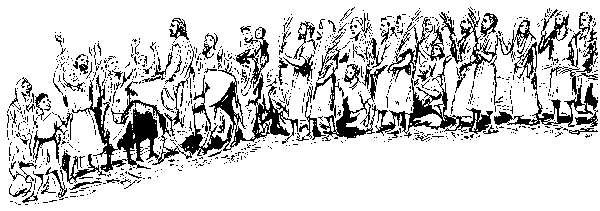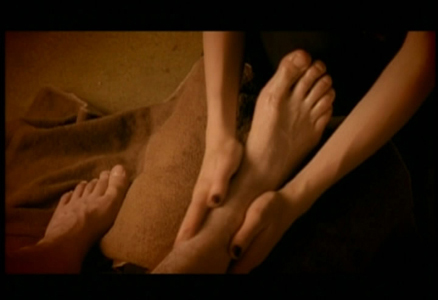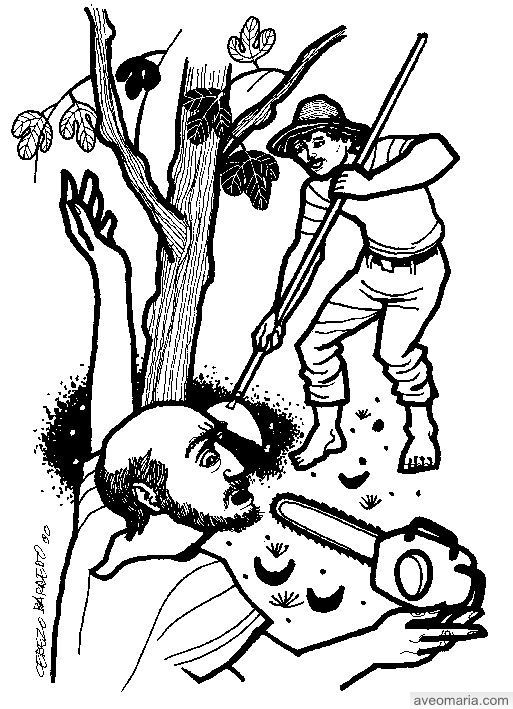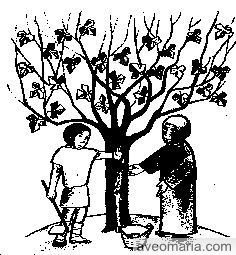The Rev. Leah D. Schade
Palm Sunday, March 24, 2013
Were you there? That's what we'll be singing later in the
service. Were you there when they
crucified my Lord?
The most obvious answer is,
No, of course I wasn't there. That
happened over 2000 years ago. None of us
were there.
And yet, here we are telling
the story again, just like we do every year.
We begin with our palms lifted high, singing "All Glory, Laud and
Honor," our voices echoing those of the crowds gathered outside of
Jerusalem waving branches, spreading their cloaks on the road, cheering on the
man they hoped would lead them to a glorious military victory over the Roman
Empire.

Less than 30 minutes later,
we're all yelling, "Crucify him!" at that same man. What happened? Why the sudden 180 degree turn?
Things can change so quickly
when you're dealing with large crowds of people. There is a schizophrenia to this day that can
almost give you whiplash. We wonder how
the adoring fans of Jesus can suddenly turn on him and condemn him to death.
But then we're no strangers
to the fickleness of crowds. I remember
attending a Phillies game a few years ago.
Were you there? As the team came
on the field, 40,000 fans are cheering on their team. We were waving our palms – our hands, completely
psyched for victory. But when the players
started making mistakes, when the other team started scoring, when they lost
the game, those cheers quickly turned to jeers.
Our palms became clenched in anger.
One minute we’re screaming the praises of their seemingly Messianic
team. But if the players don't live up
to the expectations of the crowd, the curse words and obscenities come flying
out of our mouths like rotten tomatoes at the players. We go from “YAY!” to “Boo!” in the blink of
an eye.
As soon as the crowds in
Jerusalem realized that Jesus is a leader of sacrificial peace instead of
bloody war, they turn on him. One minute
their chanting Hosanna to the Son of David!
Soon after that they’re screaming, “Crucify him!” Were you there?
For some people this sudden
move from Palms to Passion is jolting.
We feel uncomfortable calling for Jesus’ death. We don’t want to be identified with that
crowd. Some Christians and certain
churches even avoid the entire Holy Week journey altogether. They have Palm Sunday, alright. But they skip over all the dark, ugly,
graphic parts of the story on Good Friday.
They go right from palms to Easter lilies. None of that messy stuff in between.
Lutherans call this “cheap
grace.” Because it requires no change,
no response. It provides no means for a
change of heart, for a transformed attitude, for a moment of self-awareness,
repentance and a decision to lead a life of reconciliation. We choose NOT to ignore the suffering of
Jesus. We believe it is vital that we
tell all parts of the story, and that we recognize ourselves as part of both
crowds – the ones who cheer, and the ones who call for crucifixion.
Why? Why is it so important that we recount this
tale of betrayal and violence? Who cares
what happened to a carpenter’s son turned preacher two millennium ago?
I saw an illustration once of
a young child sitting next to an old man on a park bench. The child says to the man, “I got tell ya,
Mister, that’s an awfully boring tattoo you’ve got on your arm there. It’s just a bunch of numbers.”
The man replies, “Well, I was
about your age when I got it. And I kept
it as a reminder.”
“Oh,” the child replies, “a
reminder of happier times?”
“No, of a time when the world
went mad. Imagine yourself in a land
where your countrymen follow the voice of political extremists who didn’t like
your religion. Imagine them taking
everything from you. Your entire family
sent to a concentration camp as slave laborers, then systematically
murdered. In this place, they even take
your name and replace it with a number tattooed on your arm. It was called the Holocaust when millions of
people were killed because of their faith.”
The child with tears on the
cheek whispers, “So you kept it to remind yourself of the dangers of political
extremism?”
The man replies, “No
dear. To remind you.”
We tell this story this day
to remember. We tell this story to our
children so that they remember. Lest we think
ourselves so much more advanced, it must be stated that we are no different
today. What was done to Jesus is still
done to people all over the world down through the centuries. The Jews in the Holocaust. The Native Americans in the Trail of
Tears. Africans brought to this country
as slaves. War refugees in the Sudan.
Neda, the woman who was killed during the protests in Iran. We remember what was done to Matthew Shepherd
and those of differing sexual orientations who are killed for their expression
of love. We remember the image of the
hooded man standing on the platform with his arms outstretched awaiting torture
at Abu Graib prison in Iraq. Were you
there?
There is another hymn
sometimes sung during Holy Week: Ah,
Holy Jesus - Who was the guilty? Who
brought this upon thee? Alas, my
treason, Jesus, hath undone thee. Twas
I, Lord Jesus, I it was denied thee. I crucified thee.
We would rather forget. We would rather not mention such unseemly
human behaviors. We would turn away. But
today, and this coming week, we consciously and intentionally remember to
remind ourselves of the danger of just going along with the crowd. To remind ourselves that while our kids are
committing seemingly harmless video violence on their screens, and while
certain organizations are calling for us to worship at the altar of the gun
under the pretense of patriotism, there are people out there, children in their
classrooms, who are subjected to real violence, real guns, whose pain is real,
whose voices need to be heard. We do
this in our worship service so that we do not become numb to the pain and thus
apathetic towards our sisters and brothers.
Because if we cut ourselves off from their pain, the cycle of violence
will only continue.
And there is one more reason
why we tell this story. We do this to
remember what God is doing in response to and in spite of what were are doing
to try to kill God’s son, to kill any of God’s children. The automatic response will be, “Well, yes,
God sent Jesus to die for our sins. God
allowed Jesus to die in order to make payment for our sins. That’s what God is doing here, right?”
But I would again argue that
this is also “cheap grace”. Because this
theory of atonement requires no response from us. It provides for no change of heart, or a
transformed attitude, or a moment of self-awareness, repentance and a decision
to lead a life of reconciliation. Does
God really require the killing of
Jesus in order to be satisfied for our sins?
No. But humans do. The Jewish and Roman domination systems had
to kill Jesus because he was a threat to their power. And we continue to sacrifice lives for the
sake of institutional domination, racial and sexual arrogance, economic and
territorial greed and petty pride.
But God's answer to this is
that: this must stop. If God wanted sacrifice, then Jesus would
have remained dead. That's not what
happened. Jesus was resurrected. Jesus
lives. This means that God does not
condone violence. God submits to it,
absorbs it, lives right through it in order to be in solidarity with those who
suffer through it. But then God
resurrects the condemned one, the betrayed one, the crucified one in order to
show that this act of violence is not the last word.
This tattoo on the arm on the
Jew is not the last word. This mark on
Jesus’ wrist is not the last word.

Were
you there?
Be there. Stay with it.
Don’t turn away from it. Stay
with the journey. It will not be easy. It will not be fun. But this is part of God’s plan to transform
the worst of humanity into the very best that God intends. Be there, knowing that God is going to meet you there.
Amen.








